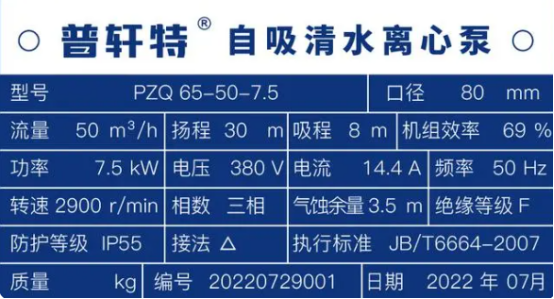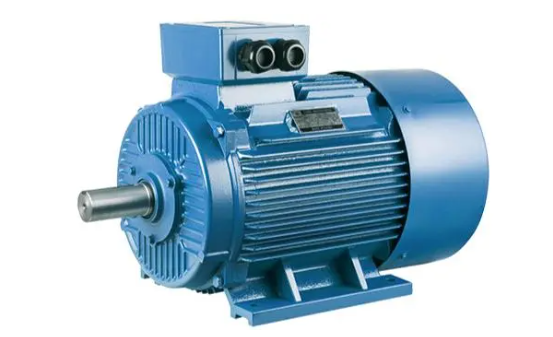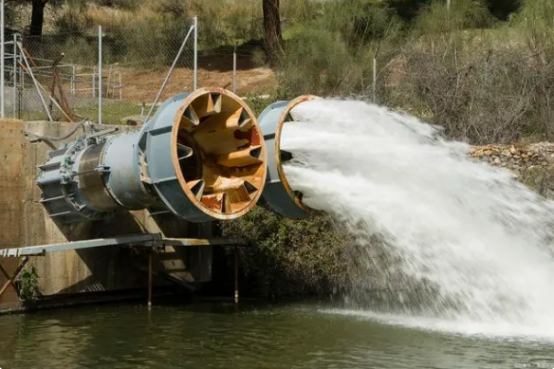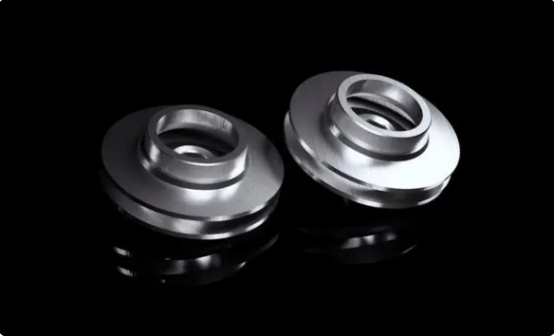Not only citizens have ID cards, but also water pumps, which are also called "nameplates". What are the various data on the nameplates that are more important, and how should we understand and dig out their hidden information?
01 Company name
The name of the company is a symbol of products and services. We can also use this information to check whether the company has the corresponding production qualifications in relevant industry certification bodies to prove the true identity and reliability of the water pump manufacturer. For example: ISO quality management system certification, invention patent certification, etc.
Obtaining this information will help us understand the situation of the production company and have a certain degree of confidence in product quality. The more standardized the company, the higher the overall service level, and the after-sales service for users is also guaranteed.
02 model
The model of the water pump consists of a string of letters and numbers, which represent information such as the type and size of the water pump. For example, QJ is a submersible electric pump, GL is a vertical single-stage centrifugal pump, and JYWQ is an automatic agitating sewage pump.
As shown in the figure below: the number "65" after the PZQ letter represents the "nominal diameter of the pump inlet", and its unit is mm. It specifies the diameter of the connecting pipeline and can help us find a suitable pipeline to connect to the water inlet.
What does the "50" after "80" mean? It means "nominal diameter of the impeller", and its unit is mm, and the actual diameter of the impeller will be determined according to the flow and head required by the user.
"7.5" means the power of the motor, which represents the maximum power that the motor can run for a long time under the rated voltage. Its unit is kilowatts. The more work done in a unit time, the greater the power.
03 flow
The flow rate is one of the important reference data when selecting a water pump. It refers to the amount of liquid delivered by the pump in a unit time. The actual flow rate we need when selecting a water pump is also one of the reference standards. The flow rate is not as large as possible. If it is larger or smaller than the actual required flow size, it will increase power consumption and cause waste of resources.
04 head
The head of the pump can be simply understood as the height that the pump can pump water, the unit is m, and the head is divided into the water suction head and the water outlet head. The head is the same as the pump flow, the higher the better, the flow of the pump will decrease with the increase of the head, so the higher the head, the smaller the flow, and the smaller the power consumption. Generally speaking, the head of the water pump is about 1.15~1.20 times of the water lifting height.
05 Necessary NPSH
Necessary NPSH refers to the minimum flow rate at which the liquid can still flow normally when the wear and corrosion of the inner wall of the pipe reaches a certain level during the liquid flow process. If the flow rate is less than the necessary NPSH, cavitation occurs and the pipe fails.
To put it simply, a pump with a cavitation allowance of 6m must have a head of at least 6m of water column during operation, otherwise cavitation will occur, damage the pump body and impeller, and reduce the service life.
Figure | impeller
06 Product number/date
The number and date are also a key source of information for aftermarket pump repair and maintenance. Through this information, you can find important information such as the original parts of the pump, operation manual, service life, maintenance cycle, etc., and you can also trace the production of the pump through the serial number to find out the root problem.
Conclusion: The water pump nameplate is like an ID card. We can understand the company and grasp product information through the nameplate. We can also affirm the brand strength and discover the value of the product through the product.
Like and follow Purity Pump Industry to learn more about water pumps easily.




